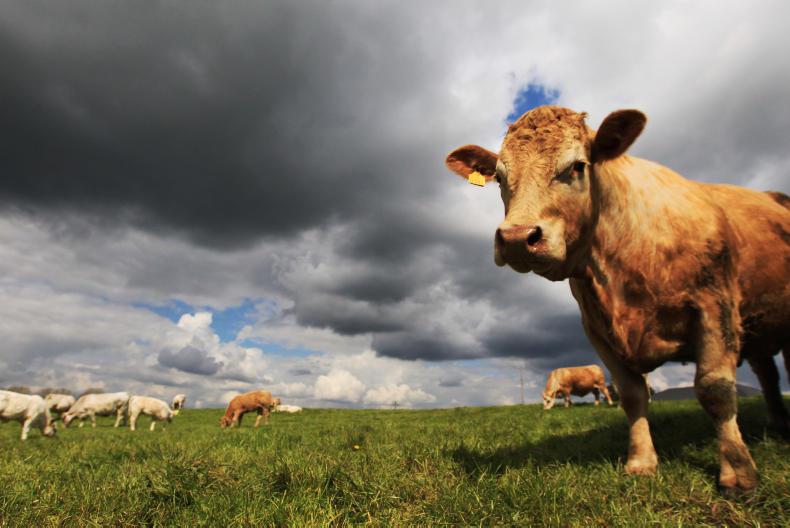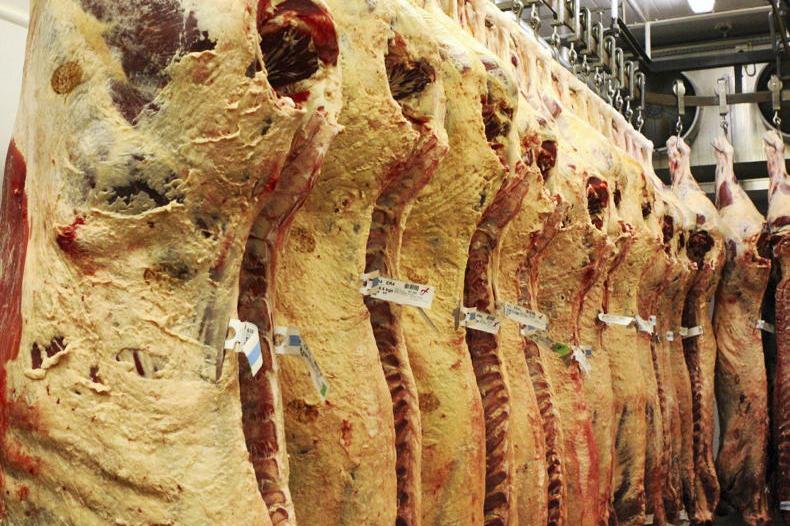The report commissioned by the Irish Government quantifies the extent of damage Brexit will cause to the Irish economy up to 2030.
In farming and agri food circles, the devastating consequences of a hard Brexit and WTO trading terms were already well understood and appreciated.
However, the Copenhagen Economics report goes much further and reveals that no matter what type of Brexit occurs, the impact on Ireland, and agriculture in particular, will be serious.
Trading relationships
The report considers four possible types of future trading relationships that could be negotiated between the EU and the UK.
The closest would be the UK being a member of the European Economic Area (EEA) which would lead to minimal tariffs and a high degree of regulatory alignment.
A second option would be UK membership of a Customs Union with the EU, which would mean common external tariffs.
What appears to be the preferred UK option – a comprehensive free trade agreement (FTA) – would leave maximum freedom for the UK to make external deals, with minimal regulatory alignment.
The final option explored is trading under WTO rules – the likely outcome if no deal is negotiated.
Soft Brexit of little benefit
The toughest reality for Irish farmers is the fact that no matter how soft the Brexit is there will still be a cost to Ireland, with the beef and dairy sectors set to be hit hardest.
Under the option of the UK remaining part of the EEA, sales to the UK for beef are forecast to be down 29%, with an even higher fall for dairy at 35%.
Moving through the other three models that were considered, at its worst the decline in trade with the UK for beef is predicted to reach 53%, while dairy trade to the UK could fall by 76% of the levels it would have been at in 2030 had the UK remained in the EU.
For processed food, the predicted decline in trade with the UK ranges between a best case of 40% to a worst case scenario of 87%.
Wider economic impact
While the devastating impact of Brexit on agriculture comes as no surprise, the negative impact across the entire economy may not have been fully appreciated.
Indeed, there had been opinions that Brexit would present opportunities for Ireland and while there may still be limited possibilities in banking, insurance and wider financial services, the reality is that across the industrial sectors, Brexit is a negative.
What can Ireland do to minimise damage?
The ideal outcome for Ireland is that the UK would change its mind and remain part of the EU.
However, as time progresses that is becoming less likely.
The main objective for Ireland has to be retaining the value of the UK market, which will be quite a challenge with the biggest cost being regulatory divergence.
The report is an evidence-based confirmation that of the EU27, it is Ireland that will be most damaged by Brexit..
Therefore, it falls to the EU, along with the Irish Government, to develop something akin to the Marshall Plan, which was used to rebuild Europe in the 1950s – though not quite on the same scale.
The report does recognise that the scenarios presented are done so without Government intervention, which means there is the potential to mitigate the damage predicted through a proper investment plan.
Other markets
In agriculture, there is often a trite academic suggestion made that Ireland should reduce its dependency on the UK and develop other export markets.
This overlooks the reality that for high volume, limited shelf life products, having the world’s fifth largest economy on our doorstep is particularly lucrative.
The UK also has the attraction of being a net importer unlike many international exports.
Gaining entry to new markets for beef would offset some of the loss from displacement in the UK.
China, including Hong Kong, is one such market, with predictions that it could take between 10-20% of our beef exports – still a very long way from the 50% that the UK currently buys though.
Irish dairy has the benefit of already enjoying access to global markets and is generally competitive with world market prices.
The loss of the UK cheese market because of Brexit would involve an expensive refocus on processing in the industry, which would come at a huge cost.
EU supports
Historically the EU has had a comprehensive support mechanism for the beef and dairy industries through intervention purchases and export refunds.
To accommodate the market shock of Brexit in any form, resurrection of these would offset at least some of the potential damage.
The other measure that the EU can take without any direct financial cost is to avoid any trade deal that impacts on the EU market for agri produce for at least 10 years, until it becomes clear what trade distorting impact the UK departure has caused.
Read more
Dairy and beef exports could fall by 76% and 53% in hard Brexit
Brussels and the UK on a collision course
The report commissioned by the Irish Government quantifies the extent of damage Brexit will cause to the Irish economy up to 2030.
In farming and agri food circles, the devastating consequences of a hard Brexit and WTO trading terms were already well understood and appreciated.
However, the Copenhagen Economics report goes much further and reveals that no matter what type of Brexit occurs, the impact on Ireland, and agriculture in particular, will be serious.
Trading relationships
The report considers four possible types of future trading relationships that could be negotiated between the EU and the UK.
The closest would be the UK being a member of the European Economic Area (EEA) which would lead to minimal tariffs and a high degree of regulatory alignment.
A second option would be UK membership of a Customs Union with the EU, which would mean common external tariffs.
What appears to be the preferred UK option – a comprehensive free trade agreement (FTA) – would leave maximum freedom for the UK to make external deals, with minimal regulatory alignment.
The final option explored is trading under WTO rules – the likely outcome if no deal is negotiated.
Soft Brexit of little benefit
The toughest reality for Irish farmers is the fact that no matter how soft the Brexit is there will still be a cost to Ireland, with the beef and dairy sectors set to be hit hardest.
Under the option of the UK remaining part of the EEA, sales to the UK for beef are forecast to be down 29%, with an even higher fall for dairy at 35%.
Moving through the other three models that were considered, at its worst the decline in trade with the UK for beef is predicted to reach 53%, while dairy trade to the UK could fall by 76% of the levels it would have been at in 2030 had the UK remained in the EU.
For processed food, the predicted decline in trade with the UK ranges between a best case of 40% to a worst case scenario of 87%.
Wider economic impact
While the devastating impact of Brexit on agriculture comes as no surprise, the negative impact across the entire economy may not have been fully appreciated.
Indeed, there had been opinions that Brexit would present opportunities for Ireland and while there may still be limited possibilities in banking, insurance and wider financial services, the reality is that across the industrial sectors, Brexit is a negative.
What can Ireland do to minimise damage?
The ideal outcome for Ireland is that the UK would change its mind and remain part of the EU.
However, as time progresses that is becoming less likely.
The main objective for Ireland has to be retaining the value of the UK market, which will be quite a challenge with the biggest cost being regulatory divergence.
The report is an evidence-based confirmation that of the EU27, it is Ireland that will be most damaged by Brexit..
Therefore, it falls to the EU, along with the Irish Government, to develop something akin to the Marshall Plan, which was used to rebuild Europe in the 1950s – though not quite on the same scale.
The report does recognise that the scenarios presented are done so without Government intervention, which means there is the potential to mitigate the damage predicted through a proper investment plan.
Other markets
In agriculture, there is often a trite academic suggestion made that Ireland should reduce its dependency on the UK and develop other export markets.
This overlooks the reality that for high volume, limited shelf life products, having the world’s fifth largest economy on our doorstep is particularly lucrative.
The UK also has the attraction of being a net importer unlike many international exports.
Gaining entry to new markets for beef would offset some of the loss from displacement in the UK.
China, including Hong Kong, is one such market, with predictions that it could take between 10-20% of our beef exports – still a very long way from the 50% that the UK currently buys though.
Irish dairy has the benefit of already enjoying access to global markets and is generally competitive with world market prices.
The loss of the UK cheese market because of Brexit would involve an expensive refocus on processing in the industry, which would come at a huge cost.
EU supports
Historically the EU has had a comprehensive support mechanism for the beef and dairy industries through intervention purchases and export refunds.
To accommodate the market shock of Brexit in any form, resurrection of these would offset at least some of the potential damage.
The other measure that the EU can take without any direct financial cost is to avoid any trade deal that impacts on the EU market for agri produce for at least 10 years, until it becomes clear what trade distorting impact the UK departure has caused.
Read more
Dairy and beef exports could fall by 76% and 53% in hard Brexit
Brussels and the UK on a collision course










SHARING OPTIONS